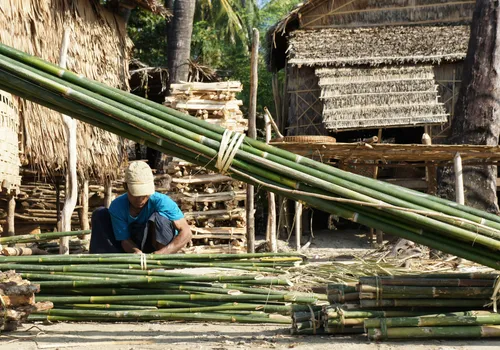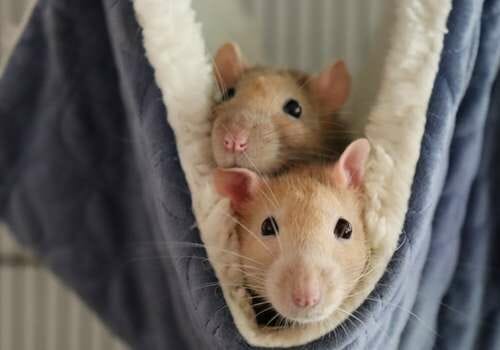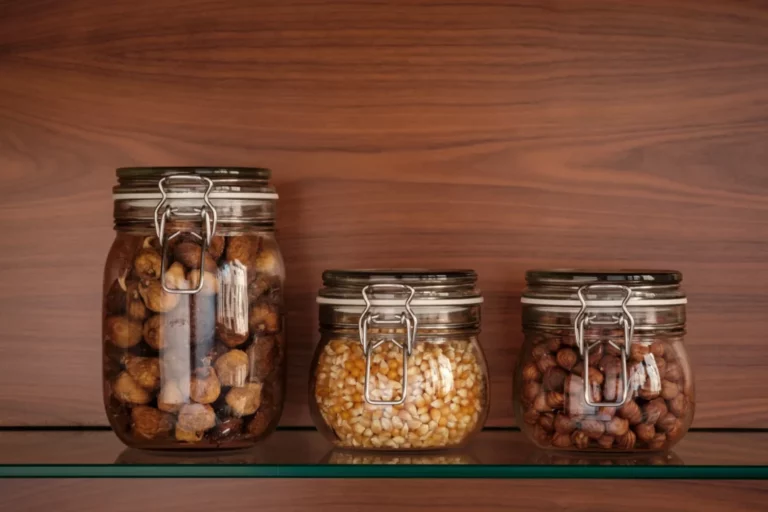The Negative Effects of Pesticides on Our Food
Expose the hidden dangers lurking in your plate: Delve into the alarming consequences of pesticides on our food and reclaim your health with sustainable alternatives.
Ever thought about the dangers of the pesticides used to grow our food? We must be aware of the risks they can bring. This article will discuss the bad impacts of pesticides on our grub.
Definition of Pesticides
Pesticides are chemicals used to kill, control, or repel pests. These pest-control products help keep our food free of infestations. But, using them comes with health concerns. It’s important to understand what these chemicals are and how they work.
Farmers and homeowners use pesticides to reduce or get rid of pests that can damage plants. These chemicals can have negative effects on our food. So, it’s essential to understand their use and effects.
Negative Effects of Pesticides
Pesticides can be a farmer’s friend, but they can also be dangerous. Overuse or incorrect use can cause health problems, like cancer and problems with reproductive health, neurological damage, fertility, and immune system suppression. Pesticide residue can travel through air or water, and stay in the environment for months or even years.
Get Your Hand on Your Eco-Friendly Living Starter Guide!
Bees and butterflies, which are essential pollinators, can be hurt by pesticides. They enter waterways and poison water life, damaging delicate ecosystems.
Governments must create regulations for pesticide use to maintain food safety and public health, while protecting the planet. Responsible pesticide use can reduce the impacts, while still giving us its benefits in agriculture.
Effects on Human Health
Ever pondered the health hazards connected to eating food sprayed with pesticides? Pesticide traces on food can result in a variety of problems for humans and animals. From minor digestive issues to long-term diseases.
Let’s explore the ill effects of pesticides in our food, and how it can harm our health.
Cancer
The WHO identifies some pesticides as potential, probable, and known carcinogens. This calls for consumers to take preventative measures to avoid future health issues, especially cancer.
Studies link pesticide consumption to an increased risk of brain tumor and leukemia in little ones. Prolonged occupational exposure to pesticides has been associated with several cancers, such as prostate cancer and non-Hodgkin’s lymphoma. Eating produce exposed to high levels of pesticides has been linked to an elevated risk of prostate tumors, bladder tumors, and pancreatic cancer.
Many older pesticides contained arsenic or lead. These substances break down, leaving residue in water supplies and soil near crop production fields. This residue can cause serious health issues, including heavy metal buildup in the body. This could lead to various cancers. The same is true for newer insecticides containing cancer-causing chemicals, such as parathion or endosulfan. If left in soil or water supplies after application, these too can create long-term health problems.
Neurological Impacts

Pesticides can have major and long-term impacts on human brains. During growth and development stages, especially pre-natal, exposure to certain pesticides can affect fetuses and children. This can lead to problems with memory, learning, or even physical impairments. Kids are even more sensitive, as their bodies are still growing and their immunity isn’t fully developed. Adults exposed to high concentrations of pesticides may experience headaches, dizziness, confusion, or even death in extreme cases.
Therefore, it’s vital to be aware of pesticide levels when consuming food, to help prevent negative health effects.
Reproductive Issues
You might be shocked to find out how pesticides can hurt our bodies. They can cause fertility problems and miscarriages. Plus, pesticides can build up in our fat and organs. This can cause sickness.
We have mostly studied how pesticides hurt animals. But, some studies have linked pesticides to bad results in humans too. A Columbia University study showed that women with high levels of pesticide-related compounds were more likely to have miscarriages.
It is becoming clearer that pesticides can be very dangerous. To protect ourselves, we should support organic farming. That way, we can stay away from these harmful chemicals that can mess up our immune systems.
Effects on the Environment
We may not be aware of it, but reducing the use of pesticides in food production is vital. Pesticides are bad for animals and plants. If used too much, they can make their way into our water and soil. This can change habitats and even damage the food we eat. Let us consider the effects pesticides have on the environment more closely.
Contamination of Soil and Water

Pesticides used in farming can linger in the soil and water long after application. Some of the chemicals seep into the ground and flow into nearby bodies of water, polluting them. This can be harmful to aquatic creatures as well as make drinking water sources unsafe for humans.
Pesticide runoff affects soil quality, too. This can hurt beneficial organisms such as earthworms and other soil microorganisms, which are important for healthy soil and high crop yields. Pesticide residue left in soils can also be taken up by plants, leading to food contamination. This is a big health problem in some places.
Decrease in Biodiversity
Pesticides can alter biodiversity. They can kill organisms, disrupt reproduction, or cause behavioural changes. Excessive or incorrect use of pesticides can be harmful to sensitive species, reducing their numbers. But, when used with selective toxicity, they can improve native species by lessening competition for resources. These species then get a chance to grow and thrive.
Loss of Nutrients in Soil
Pesticide application can cause beneficial nutrients to disappear from soil. With long-term use, fertility decreases and microorganism balance is disrupted. This can mean a lack of helpful bugs that break down organic matter. Plus, the chemicals tie up existing nutrients, stopping them from getting to plants. Poor growth and low yields follow, especially in young plants.
To help things, farmers must use more fertilizer and irrigation. This brings further damage to the environment.
Effects on Animals
Wondering why pesticides are used on crops? Well, using them can have negative impacts on animals and the environment in the long-term. This guide will explain how common pesticide products used in food production affect wild and domestic animals.

Increase in Antibiotic Resistance
Pesticides are causing an alarming rise in antibiotic resistance. Evidence shows that pesticide use in agriculture, along with animal antibiotics, is linked with bacterial resistance. Thus, it’s becoming more difficult to cure illnesses caused by these bacteria using common medications.
Each time antibiotics are used, the resistant bacteria survive and reproduce. This not only makes existing illnesses hard to treat, but also increases the risk of creating new superbugs which could affect all life on Earth.
Loss of Natural Habitats
Humans have caused much destruction of natural habitats. This has caused many animals to become extinct or endangered. No natural environment = no food, shelter, or resources for communication and reproduction. Changes like agriculture, urban development, and industrial activity have decreased suitable areas for animals. Destructive fishing practices also damage coral reefs and other marine environments, decreasing habitat for animals.
Animals relying on specific ecosystems are forced out of traditional territories as their habitats become fragmented. This can lead to isolation, with no connection between different species, reducing population numbers. Deforestation removes prey cover and disrupts migration pathways. Climate change can shift food sources or make habitats inhospitable, further lowering species numbers.
Disruption of Food Chains
Pesticides can have drastic effects on the food chain, specially when present for a long time. If a predator consumes something contaminated with pesticide, the toxin is passed on to it. This upsetting of the food chain, happens in both aquatic and land environments and is called bio-magnification and bio-accumulation.
In some cases, pesticides stop the detoxification processes that take place in the exoskeletons of insects and other arthropods. This leads to malnourishment and death. Also, it increases the need for pest control and decreases the population of pollinating insects.
The death of insect species due to pesticides is known as “insecticide drift” or “fertilizer runoff”. This reduces biodiversity due to the imbalanced population of species. Without these organisms to take care of pest populations and provide essential nutrients, productivity decreases and harvests are reduced.
Make an Effort to Reduce Exposure

It is urgent that we change our practices due to evidence of negative impacts of pesticide use on food and health. Every action we take, like buying organic foods and resources which limit environmental effects, can have a huge effect in the long run. As more people become aware, we can lessen the pesticides used.
Always prioritize your health when grocery shopping, and buy organic or pesticide-free produce. It’s also vital to support sustainable agricultural practices by educating and sharing resources on how to reduce chemical use. Knowing this information is a step towards a better agricultural system which is beneficial for the environment and humans.
Conclusion
In conclusion, pesticides can negatively affect our food. Flavor and quality may suffer, and the environment and health of humans too. So, it’s important to be aware of the risks of using these chemicals when farming.
Pesticides used in food production can cause serious health issues. These chemicals, meant to protect crops, can be especially dangerous for children. Risks include birth defects, cancer, and weak immunity. Long-term exposure can lead to cognitive impairment. Pesticides can also reduce fertility and cause child development issues.
To reduce exposure to toxic pesticides, choose organic foods. This way, you can help protect yourself, your family, and the planet from the harmful effects of agricultural farming chemicals.
Taking steps to reduce pesticide use is key.
Frequently Asked Questions
Q: What are the negative effects of pesticides on our food?
A: Pesticides can be toxic to wildlife, humans, and the environment. Eating foods that are contaminated with pesticides can cause a range of health problems, including nausea, dizziness, headaches, and endocrine disruption.
Q: What health risks are associated with consuming foods contaminated with pesticides?
A: Eating foods that are contaminated with pesticides can cause a range of health problems, including nausea, dizziness, headaches, and endocrine disruption. Long-term exposure to pesticides can also lead to cancer, reproductive issues, and neurological damage.
Q: How can I avoid eating foods contaminated with pesticides?
A: One way to avoid eating foods contaminated with pesticides is to buy organic produce from local farmers. You can also buy certified organic products from stores and look for the “USDA Organic” seal.
References:
https://www.panna.org/resources/environmental-impacts
https://depts.washington.edu/ceeh/downloads/FF_Pesticides.pdf
https://www.consumerreports.org/pesticides-in-food/stop-eating-pesticides-a1094738355/







